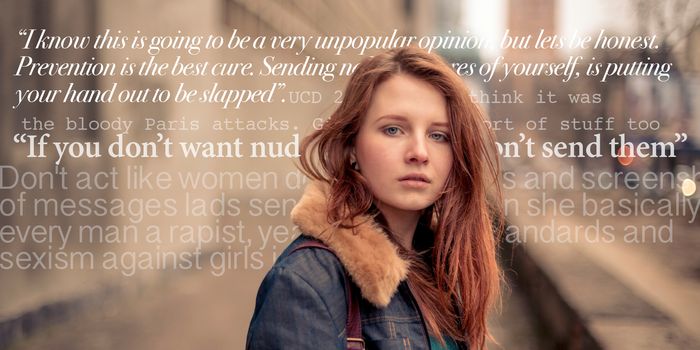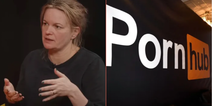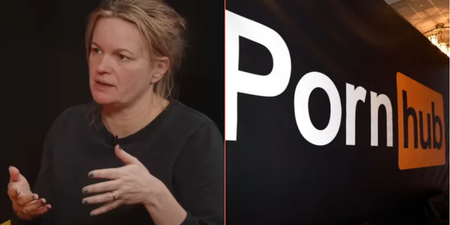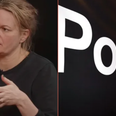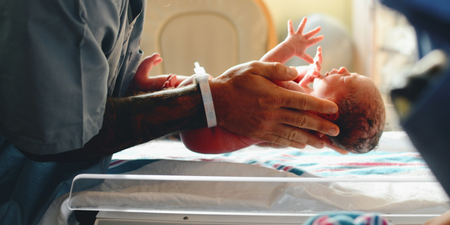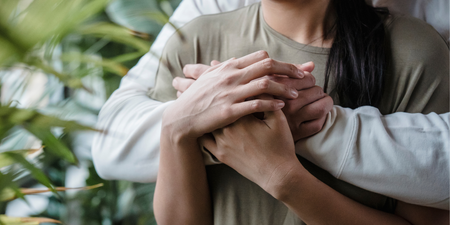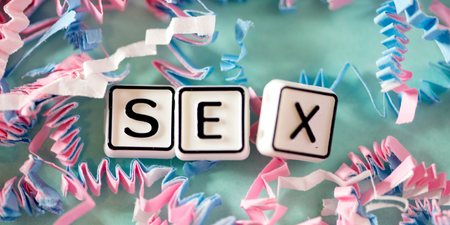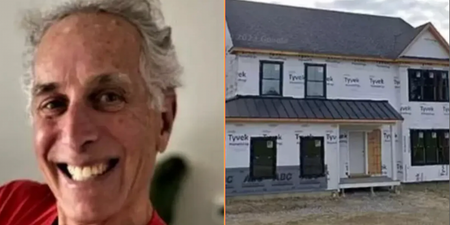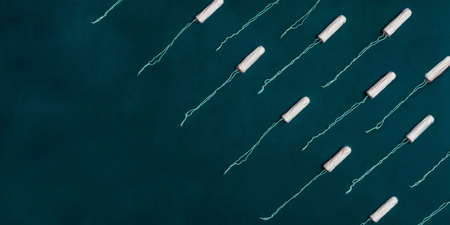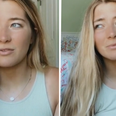“I know this is going to be a very unpopular opinion, but let’s be honest. Prevention is the best cure. Sending naked pictures of yourself, is putting your hand out to be slapped”.
Of the many things that disturbed me about the #UCD200 revelations, this comment ranked amongst the most concerning. It was left by a Her.ie reader under a post in which a female student penned a piece outlining her views on the suspected “revenge porn” group.
The idea that the women, who had intimate images distributed and rated and commented on amongst 200 men, were somehow responsible for the occurrence is terrifying.
Victim blaming, shaming or whatever you want to call it is the reason why incidences of sexual harassment, assault and rape are chronically underreported in this country. And considering convictions only occur in less than 1% of reported rapes, it seems that the idea that an attacked woman somehow prompted the assault or harassment has seeped through our legal system.
This conversation is so much greater than a group of 200 Agricultural Science students. This incident is merely another facet of a problem that permits women be objectified, harassed and blamed. The problem is a systemic one, stemmed from a societal expectation of women and a long and arduous history of shaming female sexuality.
“Sending naked pictures of yourself, is putting your hand out to be slapped”.
Variations of this statement circulated on multiple articles about the group.
“If you don’t want nudes to be sent, don’t send them”
“Don’t take nudes then”
“That’s what men do”
The expectation that this was inevitable is chilling. There was a general consensus amongst many that the incident was deserved. It was “putting your hand out to be slapped”.
Well fuck that. That view is archaic, misogynistic and detrimental to the prosperity of all women. It’s a view that teaches women to be ashamed of their bodies, to be embarrassed by their actions and to refrain from sexual exploration.
Earlier in the week Rachel O’Neill wrote “We shouldn’t assume we’re going to be attacked. We shouldn’t live in fear that at any moment, we could become another victim of lad culture. I don’t want to live like that anymore, do you?”
I don’t want to fear rape or assault or online harassment. And should I ever chose to have children, I certainly don’t want my daughter to grow up in a society that teaches her to be embarrassed. That has shown her time and time again that women should be lady-like, dainty and conservative.
And sure you can now disregard this article as merely feminist bullshit or you can see it as an opportunity to actually start to do something about a culture that permits this.
How do we solve this problem?
Well, first we redefine it.
The term revenge porn implies there’s malice in the act; that the sharing of images is done by a thwarted ex who intends on causing grievous harm. This isn’t always the case. When we talk about revenge porn we are talking about the nonconsensual circulation of intimate images with a third party.
When we talk about harassment we include an excess of unwarranted contact, both in person and in digital.
Secondly we need to understand the scope of it. We have partnered with Women’s Aid to design this survey to comprehend the extent of the issue.
The data compiled over the next number of months will be analysed and published as a report that we will make public and co-present to policy makers to ensure proper legislation for this kind of abuse.
If we can agree that we don’t want to live in a society like this anymore then we can agree to do something about it.
We want to live in a society in which women feel safe to walk home late at night, to travel, to dress how they like, to talk to whom they please and to explore their sexuality without fear of persecution, shame or violation.
Help us by completing this survey and adding to our understanding of the issue. Please share and complete this survey with friends, family, colleagues and fellow students using the hashtag #StandAgainstUCD200
Take the survey HERE.
If you find this survey raises any issues for you and you would like to talk to someone, please contact the Women’s Aid National Freephone Helpline 1800 341 900, 24 hours a day, 7 days a week.
